January 30, 2014
Faculty Bragging Rights
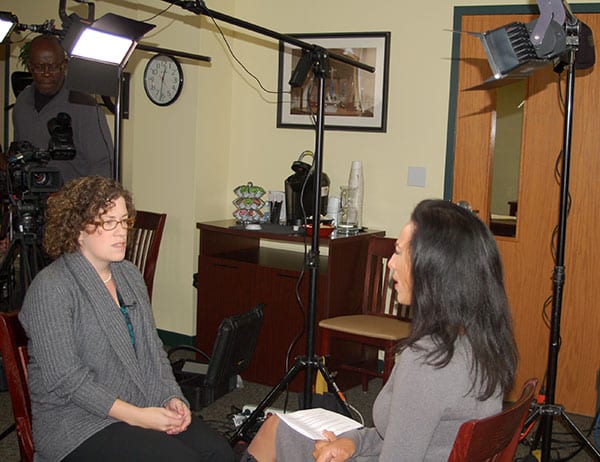
THE WEIGHTY PRESIDENT: Dr. Deborah I. Levine, assistant professor of health policy and management, attracted national attention with her research into the diet and obesity concerns of President William Howard Taft early in the 20th century. Her paper, “Corpulence and Correspondence: President William H. Taft and the Medical Management of Obesity,” was published in the Annals of Internal Medicine, one of the country’s leading medical journals.
Levine discovered letters in the Library of Congress written between Taft, who was then secretary of war under President Theodore Roosevelt, and a physician he retained in London to devise a diet. Though Taft lost 70 pounds in a year, he gained much of it back, becoming “the first celebrity yoyo dieter,” Levine said.
A four-member crew from CBS News in New York came to campus to speak with Levine about her research for a segment that ran on CBS Morning Rounds. She also was interviewed by The New York Times, The Washington Post, USA Today, and The Associated Press.
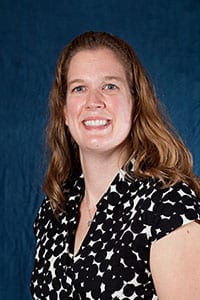
DISCRIMINATION AGAINST ‘THE ROMA’: Dr. Jennifer G. Illuzzi, assistant professor of history, was interviewed by National Public Radio’s All Things Considered about the Roma controversy, in which blond-haired, blue-eyed children were removed from gypsy parents in Ireland and Greece this past fall on suspicion of having been kidnapped.
The children in Ireland were returned to their Roma parents after DNA tests. Both incidents were part of a long history of discrimination against the Roma, often known as “gypsies,” Illuzzi told NPR’s Melissa Block.
The Roma came from India to Europe in the 14th and 15th centuries, were enslaved in eastern Europe until the 19th century, and faced discrimination in western Europe, most notably by the Nazis, who targeted them for extermination, Illuzzi said. Her book, Gypsies in Germany and Italy, 1861-1914, is being published by Palgrave MacMillan.
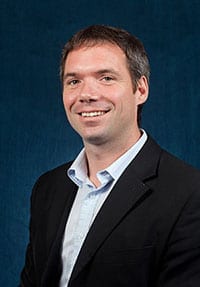
EARLY CAREER ACCOLADE: Dr. Eric M. Hartman, adjunct assistant professor of global studies, received the Early Career Research Award from the International Association for Research on Service-Learning and Community Engagement. Through his dissertation research, he developed a method to measure students’ understanding of global citizenship after an international service-learning experience. The methodology was described as groundbreaking in his nomination letter. His research since then has been “notable for its depth and diversity.”
In addition to articles in peer-reviewed journals, Hartman is the co-creator, web manager, and editor of the global service-learning resource criticalservicelearning.org and is co-author of Building a Better World: The Pedagogy and Practice of Global Service-Learning (Stylus, 2014). He also was the recipient of the Cabot Dissertation Award for Commitment to a Just Society, The University of Pittsburgh Graduate School of Public and International Affairs 4 Under 40 Impact Prize, and represented the United States in the Water Here & There International Fellows Exchange Program with China. He has contributed to sustainable community development in Africa, the Caribbean, and Latin America.
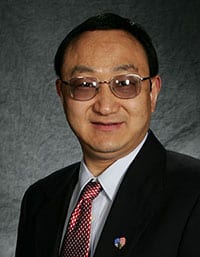
ENCOURAGING ENGAGEMENT IN SCIENCE: Dr. Yinsheng Wan, professor of biology, received a Hands-on Opportunities to Promote Engagement in Science grant from the American Society for Biochemistry and Molecular Biology. Through the project, titled Curiosity: A Secrecy of Over a Century, from Polypoid Giant Cells to Cancer Stem Cells, he presented lectures on mitosis and cell division to 20 students at Providence’s Classical High School and taught them how to culture cells and prepare samples for a confocal microscope. The students presented a poster about their work to fellow students at Classical.
Wan collaborated with a biology teacher at Classical for the grant, which was funded by the National Science Foundation. There were 11 recipients nationwide.
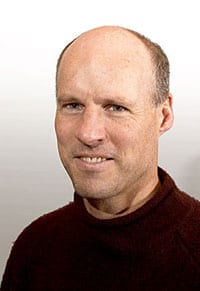
JELLYFISH PROPULSION DISCOVERY: Research from the lab of Dr. John H. Costello, professor of biology, provides new insight on how jellyfish move. The paper, published in the Proceedings of the National Academy of Sciences, addresses a long-standing question about how jellyfish have been able to take over ecosystems even though they are inefficient swimmers.
Most of a jellyfish’s acceleration stems from contracting its bell, pushing out the water inside. However, Dr. Brad J. Gemmell, a post-doctoral student working with Costello at the Marine Biological Laboratory in Woods Hole, Mass., determined that as the bell refills, vortices form inside it, creating tiny jets of water that push against the bell, contributing to additional forward acceleration.
“It’s small compared to what we call the power stroke,” Costello said. Still, this relaxation phase “creates this creeping motion forward.”
The research team, with help from experts in computational fluid dynamic modeling at Virginia Polytechnical Institute and University, determined that by recapturing this passive energy, jellyfish can move 30 percent farther. As a result, the organisms can devote more energy to growing larger, which brings them in contact with more of their prey.
The research has practical engineering applications for vehicle design. Costello has worked with the U.S. Navy modeling jellyfish propulsion for autonomous crafts. Such a vehicle might maintain its position in the water column, housing sensors that collect environmental data, for example.





